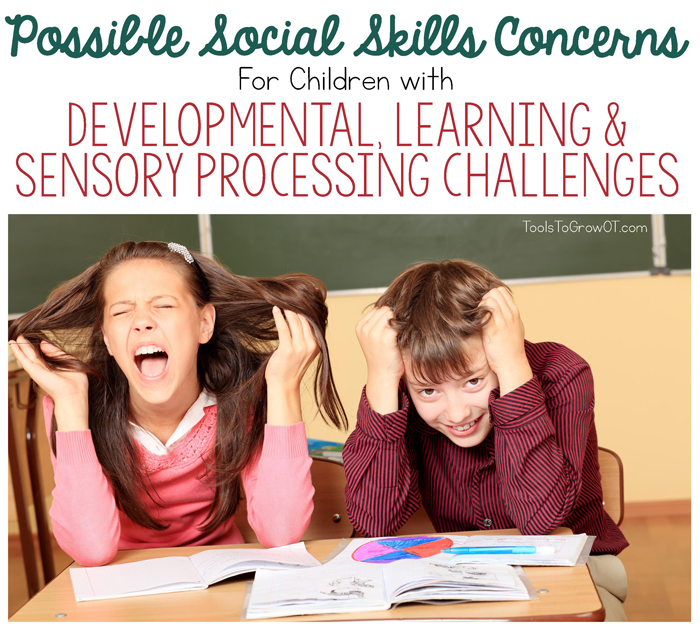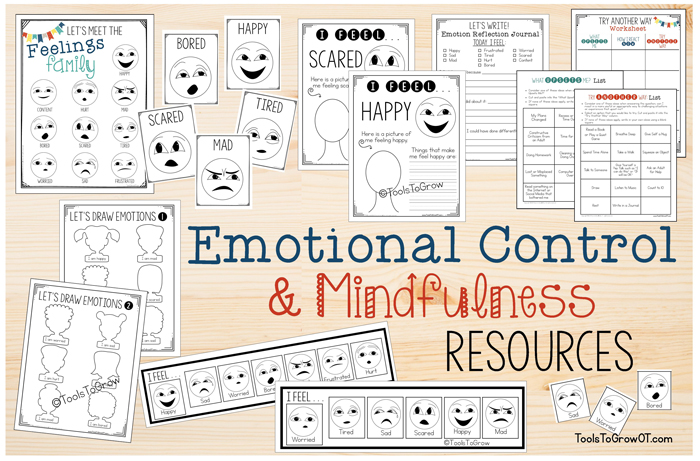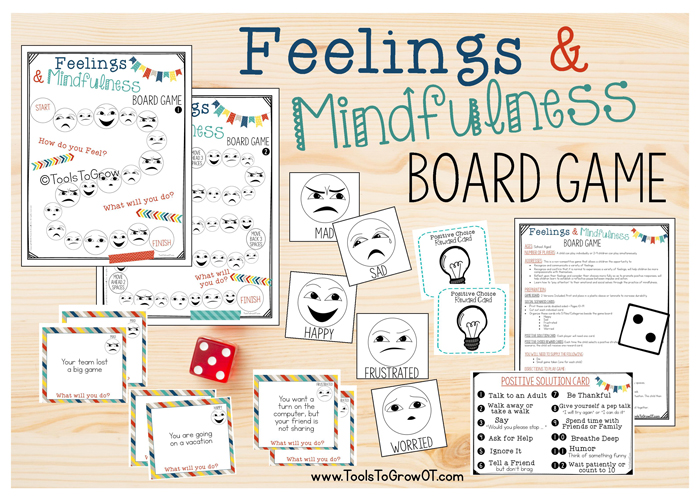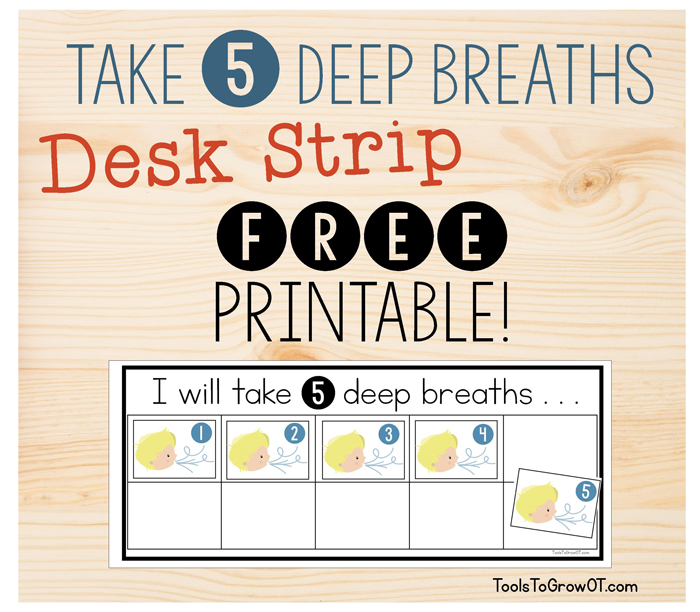Possible Social Skills Concerns for Children
04.09.2016
Possible Social Skills Concerns for Children with Developmental, Learning & Sensory Processing Challenges:
Common Findings & Strategies to Help
While an Occupational Therapist may not be the first professional that is contacted if a child is having difficulty with social interactions, it is not uncommon for that same child to have co-existing developmental, learning, and or sensory processing challenges.
Given this, an Occupational Therapist is often on the child’s “team”. In the area of social and emotional development, the Occupational Therapist can be counted upon to provide excellent ideas and resources to help bring out the best in children as they engage in meaningful activities and fulfill their roles as students, playmates, and/or family members.
This blog will highlight some common findings in children with social and emotional difficulties. The blog will also offer strategies and resources that are aimed at promoting a child’s cooperation, flexibility, self-regulation, confidence, self-esteem, and ability to communicate feelings.

A child, whether he/she is a preschooler or teenager, may present with some or many of these difficulties:
Poor Coping Skills:
- Poor anger management with frequent “melt downs”
- May not seek help when needed
- Difficulty dealing with transitions between preferred tasks, activities & locations
- Difficulty accepting “the end” of a preferred activity or task
- Unwilling to try new things-strong need for “sameness”
- Poor frustration tolerance
- Unable to “wait”
Task Avoidance:
- Limited endurance for initiating or persevering with challenging tasks
- Rejects participation in adult directed tasks
Difficulty with Making Friends & Getting Along with Others:
- May tease or insult others
- Appearance-may have poor hygiene or dress inappropriately
- May be disrespectful
- May seek attention for negative behavior
- Unable to accept “No”-not getting what he/she wants
Poor Conflict Management:
- May be aggressive when disagreements occur
- Trouble taking another’s perspective
Ineffective Communication & Conversation Skills:
- Reciprocating-does not respond to peers or adults
- Initiating-Infrequently greets others
- Interrupts others
- Perseverate with one-sided monologues
- Inappropriate physical distance
- May not speak clearly and/or politely on the phone
Poor Cooperative Play:
- Difficulty with sharing & taking turns
- Poor ability to compromise
- May struggle with “losing”
- May brag about winning
Self-Regulation:
- Unable to recognize & convey feelings
- Struggles with maintaining a calm & attentive state
- May struggle with keeping a “still body” to optimize interaction with others
- Poor ability to recover from failure, mistakes, or constructive criticism
Possible Strategies to Develop Social Skills & Maximize Cooperation
Mindfulness: Help a child “pay attention to life” by giving opportunities to increase their awareness of the here and now, as well as encouraging kindness, curiosity, and reflection.
The use of a journal may develop social skills by helping a child more carefully consider their choices and thereby decrease impulsiveness. The use of a journal may also increase positive feelings and optimism which may draw others toward the child.
Communicate Feelings: Teach and offer strategies to help a child communicate their feelings. A child that can recognize and express their feelings to the appropriate person will be less likely to act out in ways that are not socially appropriate.
Tools to Grow, Inc. is excited to share our new Emotional Control and Mindfulness Resources!
- Let's Meet the Feelings Family: Poster & Learning Cards
- Let's Write! Emotion Reflection Journal
- Let's Draw! How Do You Feel?
- Try Another Way: Activity to Support Emotional Control& Mindfulness.
- Feelings & Mindfulness Board Game
- How Do You Feel Today? Desk Strips & Visuals to Support Emotional Control
- I Feel … Writing & Drawing: Strategies to Help a Child Communicate Their Feelings
Use Visual Supports: Children that struggle with following routines may present as “uncooperative”, “stubborn”, or “difficult”. Such children may benefit from visual information that helps them predict what will be occurring, and in what sequence. Posters that remind children of positive social reactions, such as expectations when playing a board game, may also help reinforce desirable social skills.
Posters and Visual resources can be found here.
Find our Home Routine Executive Functioning Resources here.
Daily Routine Charts and Pictures can also be found here.
Use Timers: Consider decreasing the child’s wait time and time required to engage in certain tasks. This, combined with the use of a timer may increase the child’s overall cooperation. Slowly expand the time he/she needs to “wait”. If this strategy helps the child become successful, this can boost a child’s confidence and self-esteem.
Social Communication: Teach children to ready their bodies to converse and engage with others. This includes increasing eye contract with others, achieving joint attention, keeping a still body, listening rather than interrupting, and shifting topics appropriately. Some games can help children learn to improve their own body language and read other’s body language and social cues.
Find Social Skills Games, including Charades and NEW Feeling & Mindfulness Board Game here!
This is a non-competitive game that allows children the opportunity to:
- Recognize and communicate a variety of feelings.
- Recognize and confirm that it is normal to experience a variety of feelings; will help children be more compassionate with themselves.
- Reflect upon their feelings and consider their choices more fully so as to promote positive responses; will help children learn to establish a reflective pause between impulse and action.
- Learn how to “pay attention” to their emotional and social selves through the practice of mindfulness.
Find this NEW Emotional Control & Mindfulness Board Game here!
Alter the Sensory Environment: For some children it may be obvious that he/she would benefit socially from a change in their sensory environment. For other children it may take some careful problem solving to analyze what the trigger(s) may be and how to adjust their environment (add or take things away).
Find more information on Sensory Challenge Educational Series for Home here!
Find more information on Sensory Challenge Educational Series for School here!
Reinforce Positive Responses: Try to give children the opportunity to reflect upon their current “negative” reactions to challenging situations and experiences. Offer more “positive” and adaptive options to manage their emotions when sad, mad, frustrated, disappointed, or anxious.
NEW Resource: Try Another Way: Activity to Support Emotional Control& Mindfulness. This activity will help a child:
- Focus on his/her feelings and thoughts regarding situations and experiences that may be upsetting.
- Reflect upon their current “negative” reactions to challenging situations/experiences.
- Learn to persevere or more quickly regulate their emotions to re-engage in goal directed behavior or social situations, despite being challenged by a difficult situation.
Teach Self Calming Strategies: Offer strategies to help a child learn to achieve a calm and responsive state. Children that are inattentive, anxious or agitated will not be able to relate well to others. Ideas include visualization, rhythmic breathing, self-talking (“I am going to be OK”), or physical movement strategies (give self a “hug”). Some children respond well to music or writing in a journal.
Find our Sensory Star Program Here!
Download this FREE Breathing Desk Strip Here!
Implement a Reward System: Some children require extra incentives for trying their best. The promise of a reward may increase compliance and overall appropriate social behavior.
Positive Attention: Give the child positive attention when appropriate; schedule special time and activities together. Learn about the child’s interests to make them feel special.
Social Stories: These stories, using language that is understood by the child, are written in the first person to increase the child’s understanding of the social skill he/she is learning to develop. If possible, try to include the perspectives of others. Read several times a day and just before the social situation/skill that is being addressed.
Read our Blog Post on Social Stories Here!
Facilitate Positive Cooperative Play: This may include examples of how to use toys appropriately, how to take turns with a toy, how to share materials, and creating a “make believe” pretend play theme.
Find all Emotional Control and Mindfulness Resources here!
![]()
We hope this blog offered useful information and beneficial resources for the most important job there is … helping children grow!
Related Topics: Emotional Control, Free Resources , School Based OT, Sensory Processing/Self-Regulation, Social Skills , Tools to Grow at Home , Tools to Grow at School





